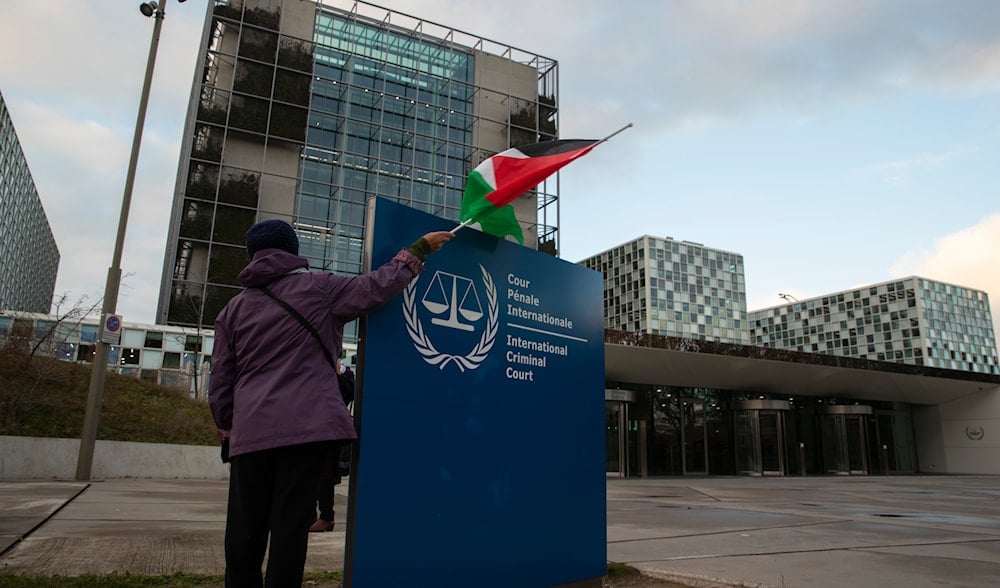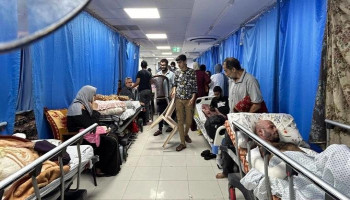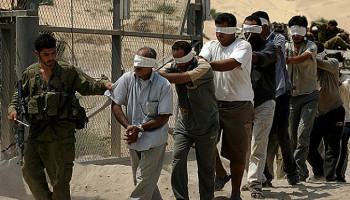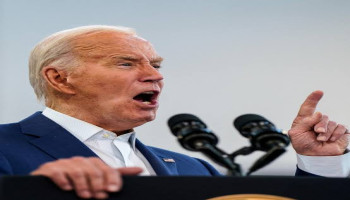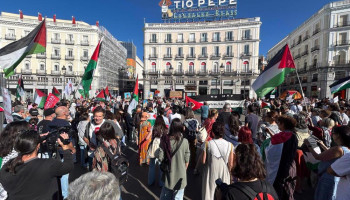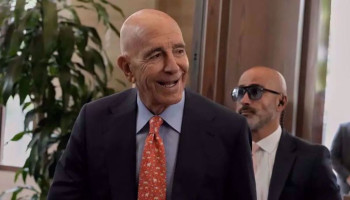The United States is preparing to impose sweeping sanctions against the International Criminal Court (ICC), potentially as early as this week, in response to investigations into Israeli war crimes in Gaza, Reuters reported. Such a move would mark the first time Washington sanctions the court as an entity, raising fears that its daily operations could be crippled.
Until now, US sanctions have targeted specific ICC prosecutors and judges. However, six sources familiar with the matter, speaking on condition of anonymity, confirmed to Reuters that Washington is considering "entity sanctions", a significant escalation in its confrontation with the court.
According to one official cited by Reuters, the ICC’s leadership has already held emergency meetings to assess the risks. Diplomats from ICC member states have also met to prepare for the fallout. A US official, also speaking anonymously, confirmed that entity-wide sanctions are under discussion, though no exact timeline was given.
A State Department spokesperson criticized the ICC for asserting what Washington called "purported jurisdiction" over American and Israeli personnel, insisting the US would take "additional steps" to defend its national interests.
Impact on ICC operations
If applied, blanket sanctions could undermine the ICC's core functions. They could block the court's access to bank accounts, disrupt payroll, and even affect routine office software licensing.
Anticipating disruption, ICC staff reportedly received their salaries for the remainder of 2025 in advance, according to three sources cited by Reuters. The court is also exploring alternative banking channels and software providers to cushion the blow.
The trigger: Indictments against Israeli officials
The latest escalation stems from the ICC's decision to indict Israeli Prime Minister Benjamin Netanyahu and former Security Minister Yoav Gallant over crimes committed during the genocide in Gaza. The court has also issued indictments against figures from the Palestinian Resistance movement Hamas.
While neither "Israel" nor the US is a member of the ICC, the court recognizes the State of Palestine as a member, granting it jurisdiction over actions committed on Palestinian territory, a position rejected by both Washington and Tel Aviv.
Earlier this year, the White House had already sanctioned Prosecutor Karim Khan after he requested the arrest warrants for Netanyahu and Gallant. Khan, currently on leave amid unrelated allegations, has denied all accusations against him.
And earlier this month, the US sanctioned three Palestinian human rights organizations for petitioning the ICC to investigate "Israel" for genocide in Gaza.
International pushback
Some ICC member states are expected to push back against Washington’s campaign during this week’s UN General Assembly in New York. However, diplomats acknowledge that the US is determined to escalate pressure.
"The road of individual sanctions has been exhausted. It is now more about when, rather than if, they will take the next step," a senior diplomat told Reuters.
US Secretary of State Marco Rubio recently described the ICC as "a national security threat" and "an instrument for lawfare" against Washington and its allies.
History of US-ICC relations
The latest confrontation reflects a long and troubled history between Washington and the ICC. In the late 1990s, the United States helped draft the Rome Statute but ultimately refused to ratify it. President Bill Clinton signed the treaty symbolically in 2000, while making clear he would not recommend Senate approval.
The hostility deepened under President George W Bush, who formally "unsigned" the treaty in 2002, passed the American Service-Members’ Protection Act, and pushed for bilateral immunity agreements to shield US personnel from ICC prosecution.
The tone shifted somewhat under Barack Obama, who pursued what his administration called "principled engagement", cooperating with the court in limited areas while continuing to reject its jurisdiction over American citizens. This period of cautious engagement ended with Donald Trump, whose administration imposed sanctions on ICC officials over investigations in Afghanistan and threatened retaliation against member states.
While the exact timing of the new sanctions remains unclear, diplomatic signals suggest Washington will escalate its confrontation with the ICC in the coming days, according to Reuters. If imposed, the sanctions could paralyze the court and deepen global divisions over accountability for war crimes.
Source:Websites

